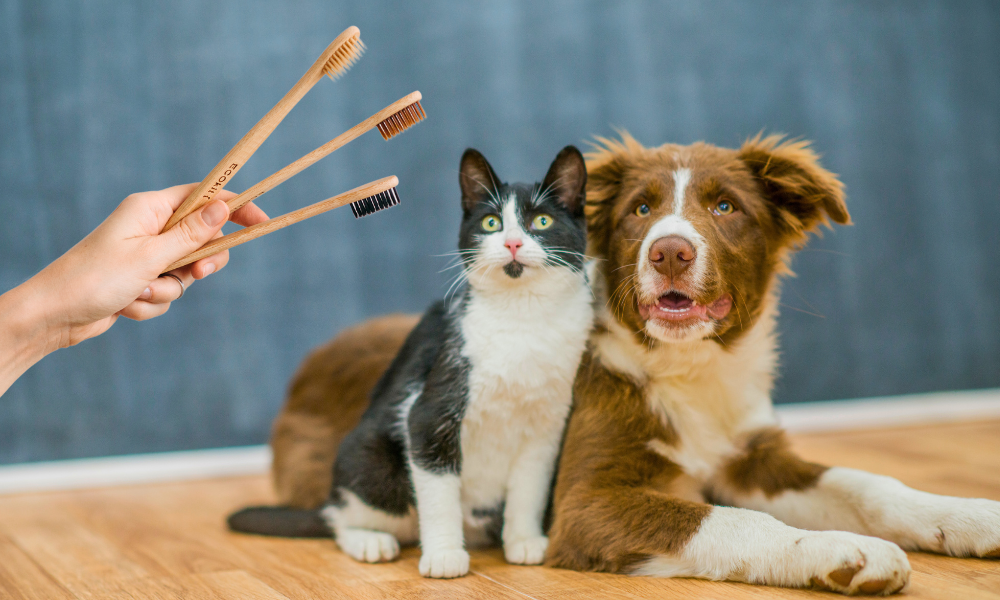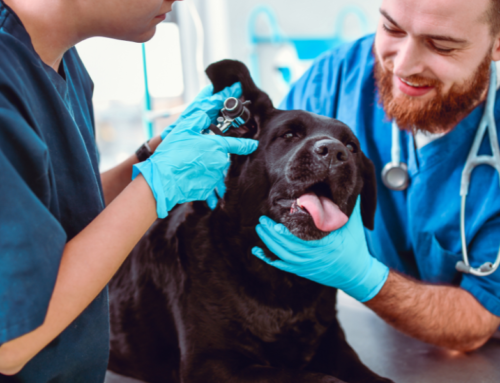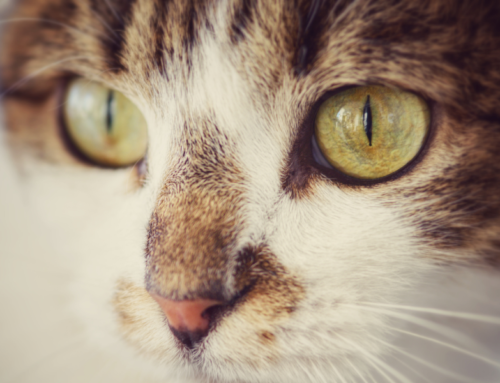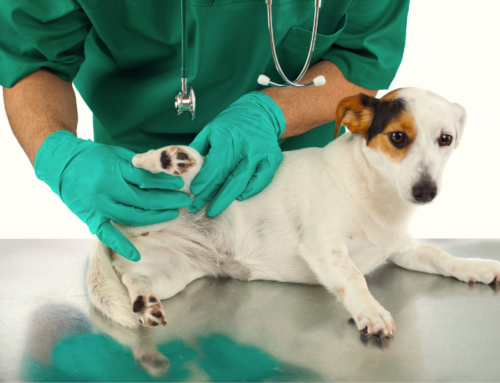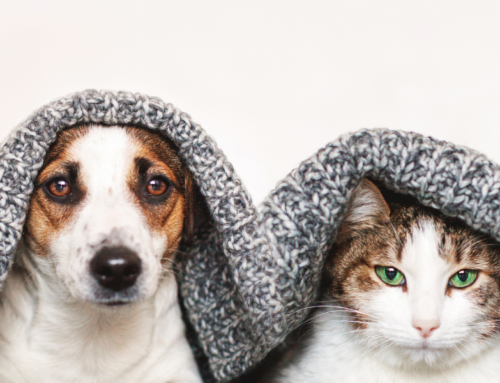With the excitement of Halloween and the delicious treats that seem to be everywhere throughout the holiday season, the Pine Valley team thinks there’s no better time than to talk about teeth cleaning for your furry friend!
Dogs and cats alike need routine care to maintain quality oral health (and overall health). It may seem silly, trying to hold your 100 lbs mass of fluff down while you scrub their canines with peanut-flavored toothpaste. But don’t be fooled by the fun flavors! Preventative care at home and routine teeth cleaning are incredibly important for your pet. At Pine Valley, we love seeing our furry patients happy with their tail wagging, and that starts with quality oral health.
What causes dental problems in animals?
Oral issues (in both cats and dogs) can be caused by a variety of factors, including:
- Broken teeth/roots
- Periodontal disease
- Abscesses or infected teeth
- Cysts or tumors in the mouth
- Broken (fractured) jaw
- Defected palates, such as cleft palate.
What is Periodontal Disease?
Periodontal disease commonly occurs in dogs and cats, and their risk of contracting it increases as they age. This disease begins with a build-up of plaque that eventually hardens into tartar. Tartar that forms above the gumline is easy to see and remove; However, tartar and plaque left unattended will form below the gumline, causing infection and damage to the jawbone and tissues that support the teeth. Periodontal disease is graded on a scale of 0 (normal) to 4 (severe). Your furry friend can start showing signs of this disease as early as 3 years old, so it’s essential to brush their teeth regularly and bring them in for routine checkups at Pine Valley.
What are common signs of oral health problems in animals?
Indicators that your furbaby is in need of dental care include:
- Bad breath
- Broken or loose teeth
- Extra teeth
- Discolored teeth (or teeth covered in tarter)
- Abnormal chewing, drooling, or dropping food
- Reduced appetite
- Mouth pain
- Swelling or bleeding from the mouth
If your furry friend is showing any of the above symptoms, bring them in for a checkup. Our Pine Valley team will know the best treatment options!
What can you do at home?
Just like preventative care for humans, regularly brushing your pet’s teeth helps avoid plaque buildup and keeps their mouths clean between dental appointments. Daily brushing is best, but several times a week is effective. Most dogs are amenable to having their teeth brushed, but cats can be more resistant and may require more patience and training.
How can we help?
Our professional recommendation: your pet’s teeth and gums should be evaluated by our doctors at least once a year to check for oral problems and warning signs. And when it’s time for a mouth cleaning, we offer comprehensive dental care services that will help keep your pet happy, healthy, and smiling. Aside from our services, we also offer a range of dental chews and oral-friendly treats, available on our online store.
Your furry friend deserves the best, so treat their teeth with care. A happy life starts with a healthy mouth!

